Can Home Remedies Treat Pinworms Overnight?
Manage the discomfort caused by the tiny worms at home with these natural ingredients.
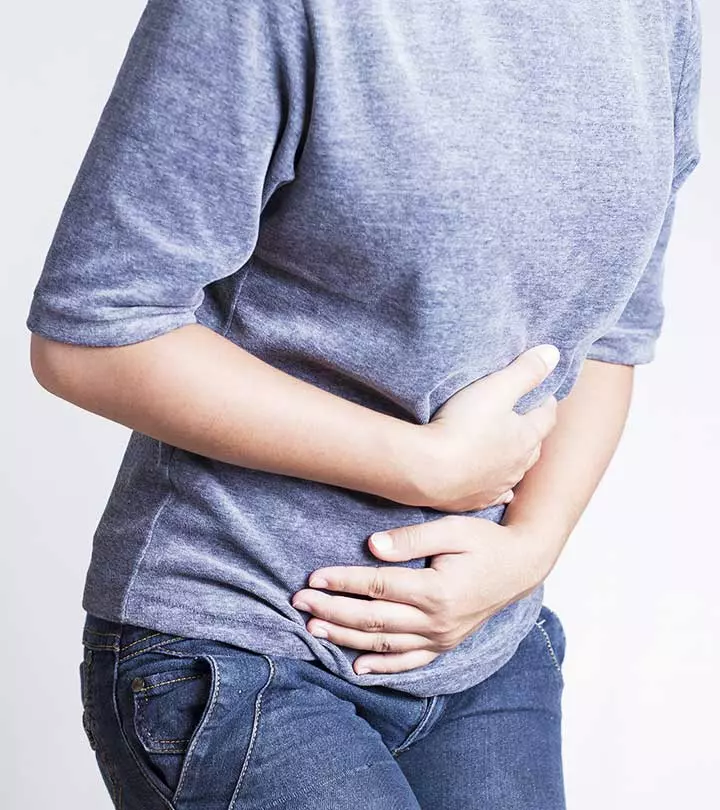
Image: Shutterstock
Pinworms are thin and tiny worms that can infect the intestine and colon in humans. Easily seen with the naked eye, pinworm infections are commonly seen in children (1). However, people of all ages are at risk of contracting pinworm infection if they do not follow safety precautions. So, how to get rid of pinworms overnight? If you are looking for home remedies to treat pinworms, you have come to the right place. Pinworms are highly contagious and are contracted through infected clothing and bedding. If you or your loved one shows signs of pinworm infection, consult a doctor immediately. Although there is limited scientific evidence, there are some popular home remedies one can try in conjunction with proper medical treatment. In this article, we explore some of the causes and how to get rid of pinworms naturally. Scroll down for more information.
In This Article
What Are Pinworms?
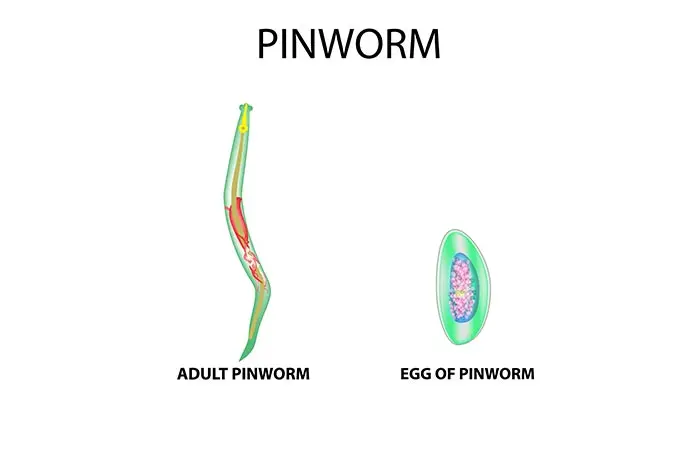
Pinworms are tiny and white worms that live in the colon and rectum of the infected individuals. They are also called Enterobius vermicularis, and the infection is usually known as enterobiasis or helminthiasis.
The infections caused by pinworms are highly contagious and are a result of the ingestion of the tiny eggs laid by them. While children are more vulnerable to them, they can also cause infection in adults (2).
A study to understand the detection rate of pinworms was conducted on 3991 patients in Berlin. It was found that pinworms occurred mostly in children aged 4-10 along with their relatives. Pinworms were detected in 971 samples out of 5578. The detection rate was higher in male (20%) than in female (15.4%) patients.
Read on to understand the causes of this parasitic infection.
Key Takeaways
- Pinworms are contagious worms that cause itching in the anal and abdominal pain.
- Applying minced garlic on the affected area every night may help treat the infection.
- Clean your house with hot water and detergent to prevent the recurrence of pinworms.
- Untreated pinworms may cause long-term side effects like weight loss and urinary tract infection.
What Causes Pinworms?
Pinworm infections are solely caused due to the accidental inhalation or ingestion of the eggs by a human or animal.
These eggs are usually transferred via contaminated foods, drinks, or other infected utensils. The eggs are extremely small and cannot be seen with naked eyes (3).
Once they enter your body, they hatch and turn into adult worms within weeks. The adult worms continue to move in the body and lay more eggs around the anus region of the infected person, and these become infective within a few hours. This cycle will continue until the infection is cured, and the entire household of the infected individual is disinfected.
We will now look at some of the common signs and symptoms observed in an individual infected by pinworms.
Signs And Symptoms Of Pinworms
- Frequent itching and irritation in the anal area
- Disturbed sleep due to an irritated anal region
- Presence of pinworms in stools
- Nausea and occasional abdominal pain
- Irritability and restlessness due to lack of sleep because the worms lay their eggs at night.
Angela Standley, a blogger, shared her experience about contracting enterobiasis or pinworm infection on her personal blog. She observes, “My symptoms included bloating, foul gas (smelly farts), unformed stools (I describe them as ‘fluffy’ – I’m sorry this is very graphic!), and as it got worse I also experienced sleeplessness and fatigue. Occasionally I felt so unwell I had to leave work early and lay down, and even lost it emotionally (i).”
Pinworms can be very irritating and troublesome in the long run. Hence, it is best to treat the condition as soon as you observe its onset. While many medical treatments are available for pinworm infections, people also try natural remedies as complementary options. Some of these natural and cost-effective herbal remedies are mentioned below. Please note that these remedies for intestinal parasites do not have scientific data to support their effect on pinworms. They are based on anecdotal evidence or their occurrence in traditional medicine. Hence, it is important to consult a doctor. Also, make sure you are not allergic to any of the ingredients before proceeding with a remedy.
How To Get Rid Of Pinworms Naturally
- Apple Cider Vinegar
- Coconut Oil
- Garlic
- Hot Water
- Essential Oils
- Grapefruit Seed Extract
- Lemon Juice
- PineappleJuice
- Carrot Juice
- Alcohol
- PumpkinSeeds
- Vaseline
- Bitter Gourd Juice
- Yogurt
- Wormwood Tea
- Castor Oil
- Onions
- Papaya Seeds
1. Apple Cider Vinegar
Apple cider vinegar contains about 5% acetic acid, which can lower the pH of your body. This creates an uninhabitable environment for the pinworms, making their survival inside your body difficult. Studies show that ACV may help fight harmful microorganisms like bacteria and fungus, thanks to its antimicrobial properties (4). However, its efficacy in fighting pinworms is yet to be studied. However, there is a lack of research on how apple cider vinegar is helpful in treating pinworms.
You Will Need
- 2 teaspoons of apple cider vinegar
- 1 glass of water
- Honey (optional)
What You Have To Do
- Add apple cider vinegar to a glass of water and mix well.
- Add honey for flavor and consume this solution.
How Often You Should Do This
Do this 2 times daily.
2. Coconut Oil
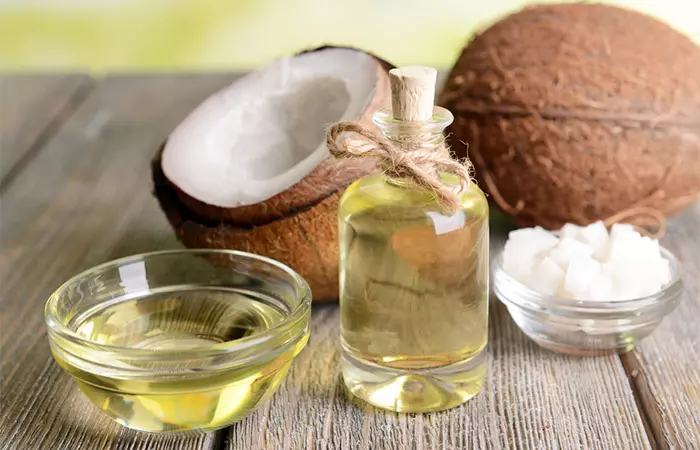
Coconut oil has antioxidant, antibacterial, and antifungal properties (5), (6). These properties can help eradicate pinworm infection and its symptoms.
You Will Need
- 1-2 teaspoons of coconut oil
What You Have To Do
- Consume a teaspoon of coconut oil every morning.
- Also, apply a small amount of coconut oil to the infected area every night.
How Often You Should Do This
Do this daily.
3. Garlic
Garlic is an anti-parasitic herb that exhibits antibacterial and antifungal properties (7), (8). It also exhibited oxyuricide (anything that destroys pinworms) properties in treating pinworm infection (9). However, more studies are needed to establish its efficacy.
You Will Need
- 1-2 garlic cloves
- Petroleum jelly
What You Have To Do
- You can chew on a few garlic cloves daily or add them as a seasoning to foods.
- You can also mince garlic cloves, mix them with petroleum jelly, and apply this paste to the affected area, preferably every night.
How Often You Should Do This
Do this once daily.
4. Hot Water
Since pinworms are highly contagious, it is of utmost importance to disinfect your entire household with hot water to get rid of them. Proper hygiene practices will also help prevent their recurrence. The CDC also recommends washing your clothes and bedding in hot water (130°F) to kill pinworms (10).
You Will Need
- Hot water
- Soap and detergent
What You Have To Do
- Wash your hands thoroughly with soap and warm water after contact with any utensils that have a possibility of being infected.
- Also, soak all the clothes and fabrics that might be infected in hot water for at least 30 minutes before washing them.
- You can also disinfect the washrooms by cleaning them daily with hot water and soap.
How Often You Should Do This
Do this daily until you get rid of pinworms.
Note: Hot water can cause burns or scalds if not appropriately handled. Use caution when washing hands, soaking fabrics, or cleaning with hot water.
5. Essential Oils
a. Tea Tree Oil
The antibacterial and antifungal properties of tea tree oil can help in this regard (11). Tea tree oil also has antiparasitic properties (12). However, there are no direct studies to support its efficacy in killing Enterobius vermicularis (pinworms).
You Will Need
- 1-2 drops of tea tree oil
- 1-2 teaspoons of coconut oil (optional)
What You Have To Do
- Mix the tea tree oil with coconut oil and apply this blend to the affected area every night.
- You can also use tea tree oil directly, but it may irritate those with sensitive skin.
How Often You Should Do This
Do this daily.
b. Clove Essential Oil
The eugenol in clove essential oil exhibits powerful germicidal, antiseptic, and antimicrobial properties (13), (14). These may help treat pinworm infection.
You Will Need
- 1-2 drops of clove essential oil
- 1 teaspoon of coconut oil
What You Have To Do
- Apply clove essential oil directly on the infected area.
- Alternatively, if you have sensitive skin, you can dilute it with coconut oil to avoid irritation.
How Often You Should Do This
Do this once every night.
Note: Essential oils are highly concentrated and may cause skin irritation. Always dilute them before applying them to the skin. Also, perform a patch test beforehand to avoid allergic reactions.
6. Grapefruit Seed Extract (Supplements)
Grapefruit seeds contain polyphenols that exhibit strong antimicrobial activity. (15), (16). This may help prevent pinworms.
Caution: Consult your physician before going ahead with these supplements.
You Will Need
- 200 mg of grapefruit seed extract supplement
- What You Have To Do
- Consume grapefruit seed extract supplements daily.
How Often You Should Do This
Do this twice a day for a week.
7. Lemon Juice
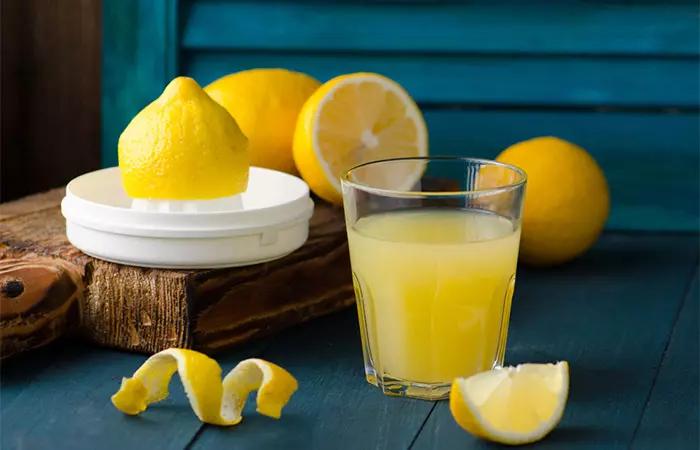
Anecdotal evidence suggests that lemon juice may help fight pinworms. However, proper studies in this regard are lacking. We recommend you speak to your doctor before using lemon juice for the same.
You Will Need
- 1/2 lemon
- 1 glass of water
- Honey (optional)
What You Have To Do
- Squeeze half a lemon into one glass of water.
- Add honey for flavor and consume this drink daily.
How Often You Should Do This
Drink this juice at least once daily.
8. Pineapple Juice
Pineapples are a rich source of an enzyme called bromelain, which exhibits antimicrobial activities (17). This may help you to get rid of pinworms. However, there are no studies linking pineapples to treating pinworms.
You Will Need
- 1/4 pineapple
- 1 glass of water
What You Have To Do
- Peel and cut the pineapple.
- Blend the cut pineapple pieces with a glass of water.
- Drink this juice.
How Often You Should Do This
Drink this juice once daily.
9. Carrots
The high fiber content of carrots can help improve bowel movements and add bulk to stool (18). This can push the pinworms out of your body via your stool. However, there are insufficient scientific studies to prove the efficacy of carrots in treating pinworms.
You Will Need
- 1 medium-sized carrot
What You Have To Do
- Wash the carrot thoroughly.
- Peel it, shred it, and have the pieces with your meal or as a snack.
How Often You Should Do This
Eat about a cup of shredded carrots 1 to 2 times daily.
10. Rubbing Alcohol
The isopropanol in rubbing alcohol has disinfecting and antimicrobial properties (19). It can help kill the pinworms and also prevent the recurrence of the infection.
You Will Need
- Rubbing alcohol
- Cotton balls or wipes
What You Have To Do
- Take some rubbing alcohol on a cotton ball and wipe the infected anal region with it.
How Often You Should Do This
Do this multiple times a day.
Note: Rubbing alcohol may cause skin irritation, dryness, or burns if used excessively or on sensitive skin. Always patch-test it before use. If irritation occurs, discontinue use and seek medical advice.
11. Pumpkin Seeds
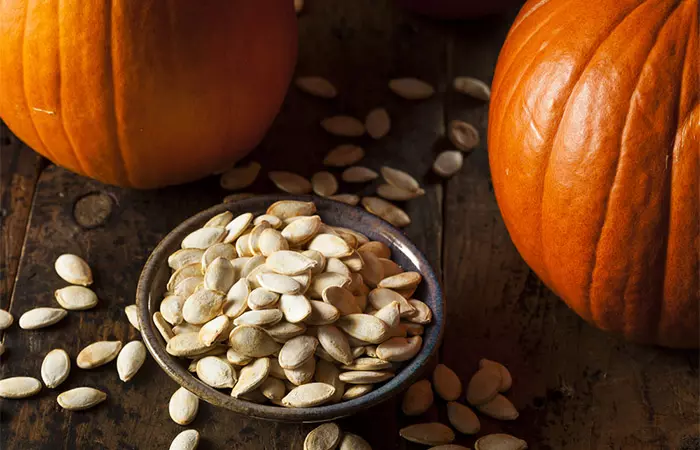
Pumpkins contain compounds called cucurbitacins that are known for their anthelmintic activity (20), (21). This activity can paralyze the worms, making it easier to expel them from your body (22).
You Will Need
- 1 cup of raw pumpkin seeds
- 1/2-1 cup of water
What You Have To Do
- Blend the raw pumpkin seeds with enough water to make a creamy paste.
- Consume this on an empty stomach.
How Often You Should Do This
Do this once every morning.
12. Vaseline
Vaseline has antimicrobial and skin-protecting properties (23). These properties of Vaseline may help relieve itching and irritation. But this is only for temporary relief and cannot be used to prevent the pinworms on a long-term basis.
You Will Need
- Vaseline
What You Have To Do
- Apply a generous amount of Vaseline on the infected area.
- Leave it on overnight.
How Often You Should Do This
Do this once daily.
13. Bitter Gourd
The cucurbitacin in bitter gourd possesses antiparasitic properties that may help expel worms from the body (24).
You Will Need
2 medium-sized bitter gourds
- 1 cup of water
- Honey (optional)
What You Have To Do
- Blend the bitter gourds with water.
- You can add honey or any fruit juice to this blend to combat the bitter flavor.
How Often You Should Do This
Drink this juice intermittently throughout the day.
14. Yogurt
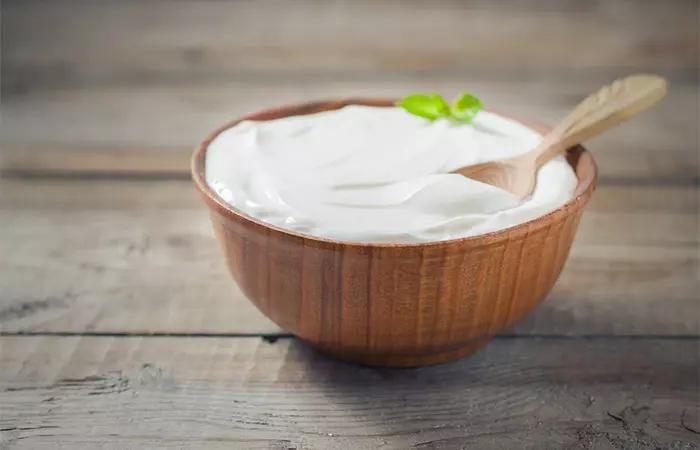
Yogurt is rich in probiotics that can restore the natural balance of bacteria in your digestive system. These bacteria are capable of destroying and eliminating harmful bacteria and germs from your body (25), (26).
You Will Need
- 1 cup of plain yogurt
What You Have To Do
- Consume a cup of plain yogurt.
How Often You Should Do This
Do this daily.
15. Wormwood Tea
The antiparasitic nature of wormwood extract helps kill parasites (27), (28). This may help prevent pinworms and combat the infection. It is also an active ingredient in parasite cleanse supplements that involve using herbal components to eliminate parasites from the body. (29)
You Will Need
- 3-4 drops of wormwood extract
- 1 cup of hot water
- Honey (optional)
What You Have To Do
- Add a few drops of wormwood extract to a cup of hot water.
- Consume this tea.
- You can also add honey for flavor.
How Often You Should Do This
Do this 3 times a day for a week.
Angela Standley, who was diagnosed with pinworm infection, opted for herbal treatments initially. On her blog, she explains, “I took preparations of anti-parasitic natural ingredients including Wormwood (Artemisia absinthium), Black Walnut leaf (Juglans nigra), coupled with herbs and nutrients for the gastrointestinal tract…”. However, she had to go for a combination of treatments, which included antibiotics for complete recovery, but these alternative treatments helped reduce her symptoms dramatically.
16. Castor Oil
Castor oil is quite popular for its anti-inflammatory and antimicrobial properties that are known to destroy and eliminate harmful worms and parasites from your body. Pinworms usually hold on to the walls of your intestines and are hence not excreted from your body. Castor oil can dislodge them from your intestines due to its laxative effects (30), (31). This, in turn, may push the pinworms out of your body via excretion.
You Will Need
- 1 teaspoon of castor oil
What You Have To Do
- Consume a teaspoon of castor oil.
How Often You Should Do This
Do this once daily.
17. Onions
Onions are rich in sulfur. These sulfur globules may help eliminate parasites from your system in a day or two (32). However, there is insufficient scientific evidence to prove this effect.
You Will Need
- 1-2 medium-sized onions
- Water
What You Have To Do
- Peel the onions.
- Wash them thoroughly and cut them into thin slices.
- Put them in a bowl and add a pint of water.
- Let the onion slices soak in the water overnight (for at least 12 hours).
- Strain the water using a cheesecloth.
- Drink this up.
How Often You Should Do This
Do this 3 times a day for 2 days.
18. Papaya Seeds
Papaya seeds have a toxic effect on intestinal worms and may help eliminate them. A rat study found that papaya seeds have antihelmintic effects and could kill parasitic worms (33). Another study on humans found that a mixture of papaya and honey could eliminate intestinal parasites without any side effects (34). However, more studies are needed to prove these claims.
You Will Need
- 1 fresh papaya
- ½ cup of water
- 1 teaspoon of organic honey
What You Have To Do
- Cut a fresh papaya, scoop out the seeds and air dry them.
- Add them to a processor along with water and prepare a creamy paste.
- Add honey and mix well to get rid of the bitter taste.
- Consume immediately.
How Often You Should Do This
Do this once every morning.
Note: Like all home treatments, these remedies to treat pinworms also contain natural ingredients that may cause allergic reactions in some people. Always perform a patch test before using them, especially if you have sensitive skin or allergies. It is also important to note that these remedies are not a substitute for professional medical advice, diagnosis, or treatment. Always consult a healthcare provider before trying them, especially if you are pregnant, nursing, or have underlying health conditions.
While home remedies may provide some relief, doctors always suggest conventional medical treatments to treat pinworms. Let us learn about it in the next section.
Home Remedies Vs. Conventional Medical Treatments For Pinworms
Most home remedies for pinworms use easily available natural substances like garlic, coconut oil, or pumpkin seeds. They are also inexpensive compared to prescription medications and may have fewer adverse effects. However, most of these remedies have limited clinical research proving their effectiveness in fully eradicating pinworms. They may also not work as quickly or thoroughly as prescription medications, allowing the infection to persist or recur. Additionally, some home remedies may only help reduce symptoms rather than completely eliminating the parasites.
Anthelmintic medications like albendazole and pyrantel pamoate, on the other hand, are clinically proven to treat pinworms. These usually show results in a single dose, but a second dose may be needed after two weeks to prevent reinfection (35). While these medications are generally safe, mild side effects like nausea, dizziness, or abdominal discomfort can occur (36).
The home remedies to treat pinworms mentioned above can help accelerate your recovery from the infection. If your symptoms persist despite using them, consult a healthcare provider. They can prescribe effective medications and offer guidance on hygiene practices to help control the infection. Additionally, you need to follow some tips to avoid the recurrence of the infection. They are as follows.
Tips To Prevent Pinworms
- Include high-fiber foods in your diet. Consumption of raw vegetables, such as carrots and cabbages, whole fruits, and grains are simple dietary changes that can increase the efficiency of the treatments against pinworms.
- Consuming probiotic foods, like yogurt and buttermilk, can help in the elimination of pinworms from your system.
- Everyone in an infected household must adopt hygienic practices like hand washing before every meal, showering daily, washing clothes with hot water, and cleaning the washrooms daily to prevent the spreading of the infection.
- The infected person’s household must be disinfected completely in every way possible. From vacuuming the carpeted areas to scrubbing the floors and changing all the sheets and towels, the entire household must be cleaned following a recovery from pinworms to avoid reinfestation.
- Dr.Soma Mandal, MD, a general physician at Summit Health and a midlife women’s health specialist, says, “Avoid sharing towels/ linens/ clothes. Avoid scratching the anal area.”
 Quick Tip
Quick TipMaking these lifestyle changes along with a holistic treatment approach will prove beneficial in the long run and prevent the recurrence of pinworms.
If left untreated for a long period, pinworms are known to lead to some complications that may range in their severity. Some of these complications are as follows.
Long-Term Side Effects Of Pinworms
- Urinary tract infection: Pinworms can enter the urethra and infect your bladder (37).
- Weight loss: As we are aware, pinworms are parasites that feed on the host’s nutrition. This may lead to weight loss in the affected individuals.
- Pelvic inflammatory diseases: Pinworms may cause pelvic inflammatory diseases in females by infecting the linings of the fallopian tubes or ovaries (38).
- Pinworm infestation can lead to inflammation of the peritoneal cavity, thus affecting digestive health. The infestation can also mimic the symptoms of acute appendicitis (39).
- In people with impaired immune system support, like HIV/AIDS patients, the infestation may occur more frequently, leading to anemia, malnutrition, and impaired intestinal health (39).
- Recurring infestations: One of the major drawbacks of a pinworm infection is its ability to resurface if proper hygiene is not maintained by infected individuals and their family members.
Infographic: Common And Easiest Ways To Get Rid Of Pinworms
Pinworm infection can be itchy and irritating. Since it is a contagious infection, it is best to prevent further spreading by disinfecting your clothes and living space. Check out the infographic below to learn some of the best ways to disinfect your living space easily. Illustration: StyleCraze Design Team
Home remedies to treat pinworms, along with the prescribed treatment, help in getting rid of them. Pinworms can cause pelvic inflammatory diseases, UTIs, and weight loss if left untreated. Ingredients like grapefruit seed extract, lemon juice, pumpkin seeds, yogurt, castor oil, and onions help reduce pinworm infections. In addition, apple cider vinegar, garlic, hot water, essential oils, carrot juice, and pineapple juice are effective. In addition, adding foods rich in fiber, probiotics, practicing hygiene, and regular disinfection of the infected person’s household help in preventing the infection by pinworms.
Frequently Asked Questions
What instantly kills pinworms?
Dr. Mandal says, “Treatment with anti-parasitic medications like albendazole, mebendazole, and pyrantel pamoate can get rid of pinworms in about 90 to 100% of cases.”
What temperature kills pinworm eggs?
Dr. Mandal says, “A temperature of at least 60°C (140°F) kills pinworms and their eggs.”
How to tell if you have worms in your stool?
The presence of small, white, thread-like structures confirms the presence of worms in your stool.
What does it feel like to have worms under your skin?
If you feel an itchy and crawling sensation under your skin, there is a possibility that you are infested with worms. However, in some cases, the reason for these sensations could be a minor insect bite, diabetes, or even skin or nerve damage. Always discuss any concerns with your doctor.
How long does it take for pinworms to clear up?
While home remedies can speed up your healing process, you will still need to consult your doctor and get the right medication. It may take about 3 to 7 days for pinworms to clear out of your system.
Can you get pinworms from toilet seats?
Yes, pinworm eggs can cling to surfaces like toys, bedding, and toilet seats for 2 to 3 weeks. Ensure you wash your linens and clean the surfaces regularly to prevent a recurrence.
What time do pinworms come out?
Pinworms tend to come out at night or early in the morning and can be seen around the anus or the anal system.
Illustration: How To Get Rid Of Pinworms: Causes 17 Home Remedies + Prevention
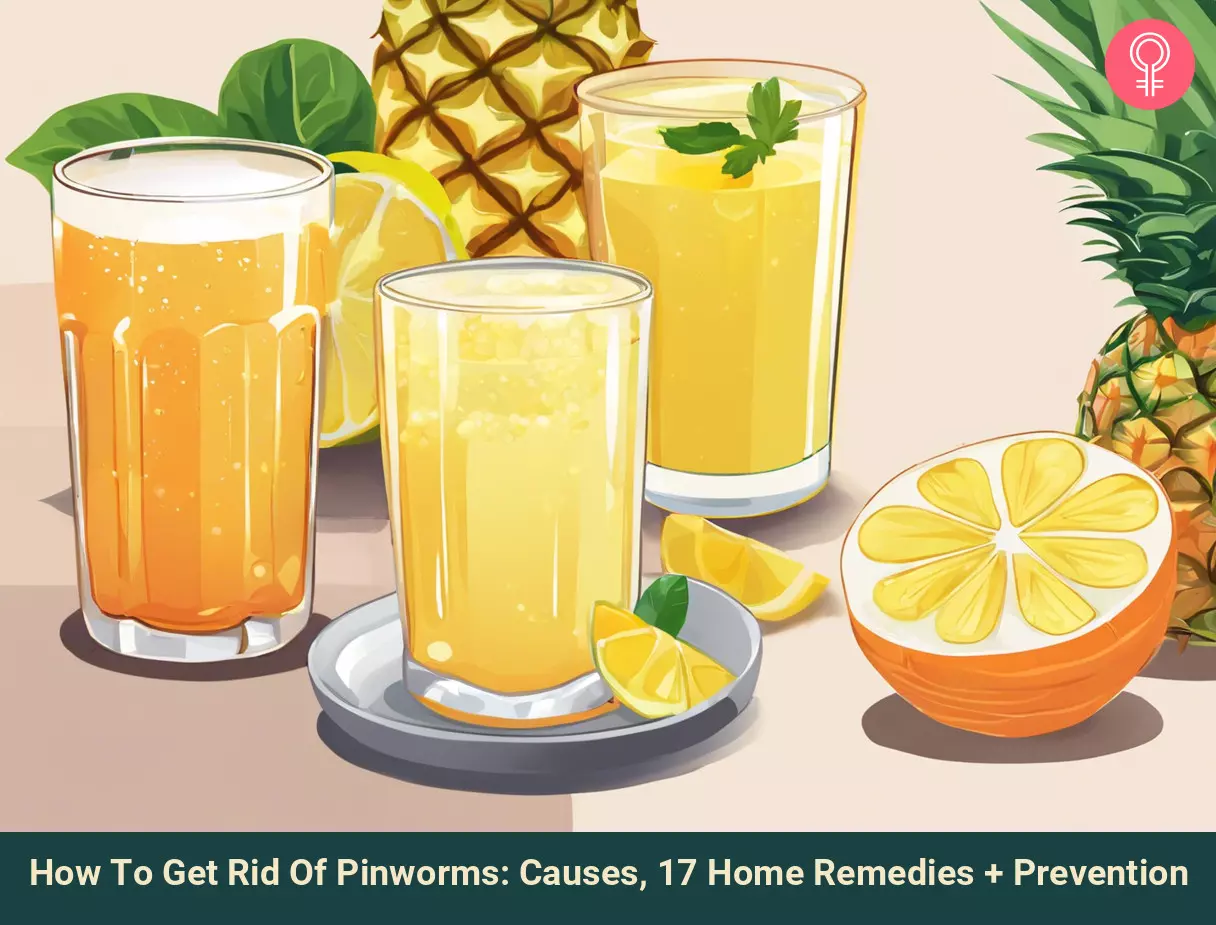
Image: Stable Diffusion/StyleCraze Design Team
References
Articles on StyleCraze are backed by verified information from peer-reviewed and academic research papers, reputed organizations, research institutions, and medical associations to ensure accuracy and relevance. Read our editorial policy to learn more.
- Epidemiology and control of enterobiasis in a developmental center, Western Journal of Medicine, US National Library of Medicine, National Institutes of Health.
https://bmcinfectdis.biomedcentral.com/articles/10.1186/s12879-019-4159-0
https://www.ncbi.nlm.nih.gov/pmc/articles/PMC1070873/ - Pinworms (Enterobius Vermicularis), Canadian Family Physician, US National Library of Medicine, National Institutes of Health.
https://www.ncbi.nlm.nih.gov/pmc/articles/PMC2306321/ - Enterobius Vermicularis (Pinworm), StatPearls, US National Library of Medicine, National Institutes of Health.
https://www.ncbi.nlm.nih.gov/books/NBK536974/
- Antimicrobial activity of apple cider vinegar against Escherichia coli, Staphylococcus aureus and Candida albicans; downregulating cytokine and microbial protein expression, US National Library of Medicine, National Institutes of Health.
https://pmc.ncbi.nlm.nih.gov/articles/PMC5788933/
- Antistress and antioxidant effects of virgin coconut oil in vivo, Experimental and Therapeutic Medicine, US National Library of Medicine, National Institutes of Health.
https://www.ncbi.nlm.nih.gov/pmc/articles/PMC4247320/ - In Vitro Antimicrobial Properties of Coconut Oil on Candida Species in Ibadan, Nigeria, Journal of Medicinal Food, US National Library of Medicine, National Institutes of Health.
https://pubmed.ncbi.nlm.nih.gov/17651080/ - Antimicrobial Properties of Allicin From Garlic, Microbes and Infection, US National Library of Medicine, National Institutes of Health.
https://pubmed.ncbi.nlm.nih.gov/10594976// - Potential Antifungal Activity of Fresh Garlic Cloves (Allium sativum L.) from Sudan, Journal of Biotechnology Research, ResearchGaete.
https://www.researchgate.net/publication/321289060_Potential_Antifungal_Activity_of_Fresh_Garlic_Cloves_Allium_sativum_L_from_Sudan - The Treatment of Pinworm Infection (Enterobiasis): A Comparative Study of Three Oxyuricides, The Journal of Pediatrics, ScienceDirect.
https://www.sciencedirect.com/science/article/abs/pii/S0022347654802113 - Preventing Pinworm Infection, U.S. Centers for Disease Control and Prevention
https://www.cdc.gov/pinworm/prevention/index.html# - Melaleuca Alternifolia (Tea Tree) Oil: A Review of Antimicrobial and Other Medicinal Properties, Clinical Microbiology Reviews, US National Library of Medicine, National Institutes of Health.
https://www.ncbi.nlm.nih.gov/pmc/articles/PMC1360273/ - Activity of tea tree oil and nerolidol alone or in combination against Pediculus capitis (head lice) and its eggs, Parasitology research, US National Library of Medicine, National Institutes of Health.
https://www.ncbi.nlm.nih.gov/pmc/articles/PMC3480584/ - Microbicide activity of clove essential oil (Eugenia caryophyllata), Brazilian Journal of Microbiology US National Library of Medicine, National Institutes of Health.
https://www.ncbi.nlm.nih.gov/pmc/articles/PMC3769004/ - Eugenol (An Essential Oil of Clove) Acts as an Antibacterial Agent Against Salmonella Typhi by Disrupting the Cellular Membrane, Journal of Ethnopharmacology, US National Library of Medicine, National Institutes of Health.
https://pubmed.ncbi.nlm.nih.gov/20435121 - Antibacterial Effect of Grapefruit Seed Extract (GSE) on Makgeolli-brewing Microorganisms and Its Application in the Preservation of Fresh Makgeolli, Journal of Food Science, US National Library of Medicine, National Institutes of Health.
https://pubmed.ncbi.nlm.nih.gov/24773577 - Polyphenolics in Grape Seeds-Biochemistry and Functionality, Journal of Medicinal Food, US National Library of Medicine, National Institutes of Health.
https://pubmed.ncbi.nlm.nih.gov/14977436 - In vitro Evaluation of Antibacterial Efficacy of Pineapple Extract (Bromelain) on Periodontal Pathogens, Journal of International Oral Health, US National Library of Medicine, National Institutes of Health.
https://www.ncbi.nlm.nih.gov/pmc/articles/PMC4229839/ - Colonic Response to Dietary Fibre From Carrot, Cabbage, Apple, Bran, Lancet (London, England), US National Library of Medicine, National Institutes of Health.
https://pubmed.ncbi.nlm.nih.gov/74533 - Ethanol and Isopropanol in Concentrations Present in Hand Sanitizers Sharply Reduce Excystation of Giardia and Entamoeba and Eliminate Oral Infectivity of Giardia Cysts in Gerbils, Antimicrobial Agents and Chemotherapy, US National Library of Medicine, National Institutes of Health.
https://pubmed.ncbi.nlm.nih.gov/26282413 - Anthelmintic Efficacy of Pumpkin Seed (Cucurbita Pepo Linnaeus, 1753) on Ostrich Gastrointestinal Nematodes in a Semiarid Region of Paraíba State, Brazil, Tropical Animal Health and Production, US National Library of Medicine, National Institutes of Health.
https://pubmed.ncbi.nlm.nih.gov/22684690 - Evaluation of Anthelmintic Activity and Composition of Pumpkin (Cucurbita pepo L.) Seed Extracts—In Vitro and in Vivo Studies, International Journal of Molecular Sciences, US National Library of Medicine, National Institutes of Health.
https://www.ncbi.nlm.nih.gov/pmc/articles/PMC5037735/ - [Preclinical Studies of Cucurbita Maxima (Pumpkin Seeds) a Traditional Intestinal Antiparasitic in Rural Urban Areas], Revista de gastroenterología del Perú, US National Library of Medicine, National Institutes of Health.
https://pubmed.ncbi.nlm.nih.gov/15614300 - Petrolatum: Barrier repair and antimicrobial responses underlying this “inert” moisturizer, US National Library of Medicine, National Institutes of Health.
https://pubmed.ncbi.nlm.nih.gov/26431582/ - An Update Review on the Anthelmintic Activity of Bitter Gourd, Momordica charantia, Pharmacognosy Reviews, US National Library of Medicine, National Institutes of Health.
https://www.ncbi.nlm.nih.gov/pmc/articles/PMC5414453/ - Impact of Enterobius vermicularis infection and mebendazole treatment on intestinal microbiota and host immune response, PLoS Neglected Tropical Diseases, US National Library of Medicine, National Institutes of Health.
https://www.ncbi.nlm.nih.gov/pmc/articles/PMC5629029/ - Probiotics for the Control of Parasites: An Overview, Journal of Parasitology Research, US National Library of Medicine, National Institutes of Health.
https://www.ncbi.nlm.nih.gov/pmc/articles/PMC5629029/ - Artemisinins: their growing importance in medicine, Trends in Pharmacological Sciences, US National Library of Medicine, National Institutes of Health.
https://www.ncbi.nlm.nih.gov/pmc/articles/PMC2758403/ - Plants as De-Worming Agents of Livestock in the Nordic Countries: Historical Perspective, Popular Beliefs and Prospects for the Future, Acta veterinaria Scandinavica, US National Library of Medicine, National Institutes of Health.
https://www.ncbi.nlm.nih.gov/pmc/articles/PMC2202332/ - Therapeutic efficacy of Artemisia absinthium against Hymenolepis nana: in vitro and in vivo studies in comparison with the anthelmintic praziquantel, Journal of helminthology,US National Library of Medicine, National Institutes of Health.
https://pubmed.ncbi.nlm.nih.gov/28606189/ - Characterization and evaluation of antibacterial and antiproliferative activities of crude protein extracts isolated from the seed of Ricinus communis in Bangladesh, BMC Complementary and Alternative Medicine, US National Library of Medicine, National Institutes of Health.
https://www.ncbi.nlm.nih.gov/pmc/articles/PMC4942971/ - Castor oil induces laxation and uterus contraction via ricinoleic acid activating prostaglandin EP3 receptors, Proceedings of the National Academy of Sciences of the United States of America, US National Library of Medicine, National Institutes of Health.
https://pubmed.ncbi.nlm.nih.gov/23202594/ - Anthelmintic activity of papaya seeds on Hymenolepis diminuta infections in rats, US National Library of Medicine, National Institutes of Health.
https://www.ncbi.nlm.nih.gov/pmc/articles/PMC3384204/ - Effectiveness of dried Carica papaya seeds against human intestinal parasitosis: a pilot study, US National Library of Medicine, National Institutes of Health.
https://pubmed.ncbi.nlm.nih.gov/17472487/ - Current Therapeutics, Their Problems, and Sulfur-Containing-Amino-Acid Metabolism as a Novel Target against Infections by “Amitochondriate” Protozoan Parasites, Clinical Microbiology Reviews, US National Library of Medicine, National Institutes of Health.
https://www.ncbi.nlm.nih.gov/pmc/articles/PMC1797636/ - Treatment Options and Considerations for Intestinal Helminthic Infections, US National Library of Medicine, National Institutes of Health.
https://pmc.ncbi.nlm.nih.gov/articles/PMC5990147/ - Antiparasitic Drugs, US National Library of Medicine, National Institutes of Health.
https://www.ncbi.nlm.nih.gov/books/NBK544251/ - Relationship Between Pinworm and Urinary Tract Infections in Young Girls, Acta pathologica, microbiologica, et immunologica Scandinavica, US National Library of Medicine, National Institutes of Health.
https://pubmed.ncbi.nlm.nih.gov/10335951 - Pelvic Inflammatory Disease Associated With Enterobius Vermicularis, Archives of Disease in Childhood, US National Library of Medicine, National Institutes of Health.
https://pubmed.ncbi.nlm.nih.gov/12023182 - Enterobius granulomas as a cause of abdominal pain, BMJ, US National Library of Medicine, National Institutes of Health.
https://www.ncbi.nlm.nih.gov/pmc/articles/PMC4550899/
Read full bio of Sarah Spann
- Dr. Soma Mandal, MD, board-certified medical internist with 25 years of experience in helping women deal with aging, skin health, and overall health. She earned her MD from the New York University School of Medicine and a prestigious research fellowship at Oxford University in England.
 Dr. Soma Mandal, MD, board-certified medical internist with 25 years of experience in helping women deal with aging, skin health, and overall health. She earned her MD from the New York University School of Medicine and a prestigious research fellowship at Oxford University in England.
Dr. Soma Mandal, MD, board-certified medical internist with 25 years of experience in helping women deal with aging, skin health, and overall health. She earned her MD from the New York University School of Medicine and a prestigious research fellowship at Oxford University in England.
Read full bio of Shaheen Naser
Read full bio of Arshiya Syeda
Read full bio of Dipti Sharma






 Trivia
Trivia

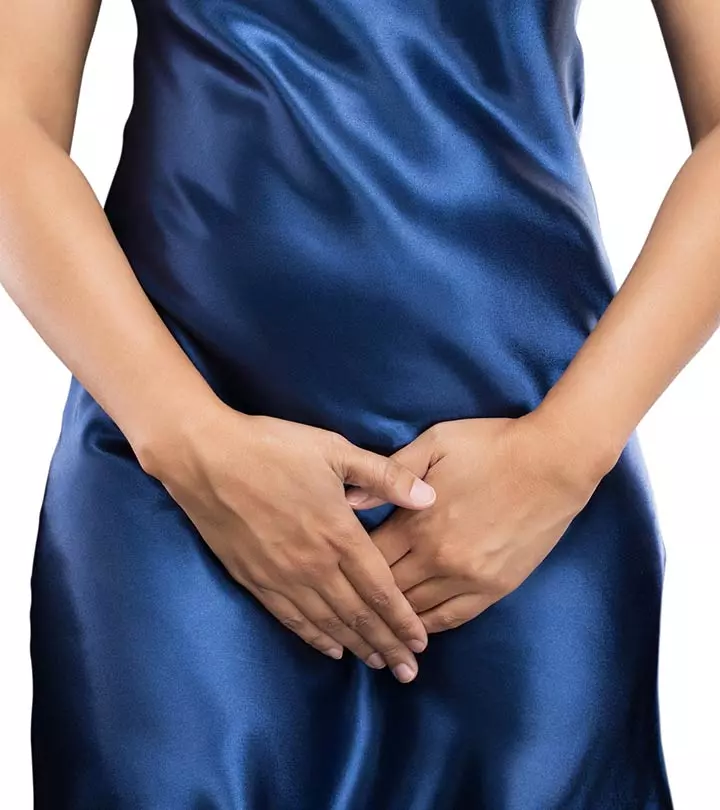
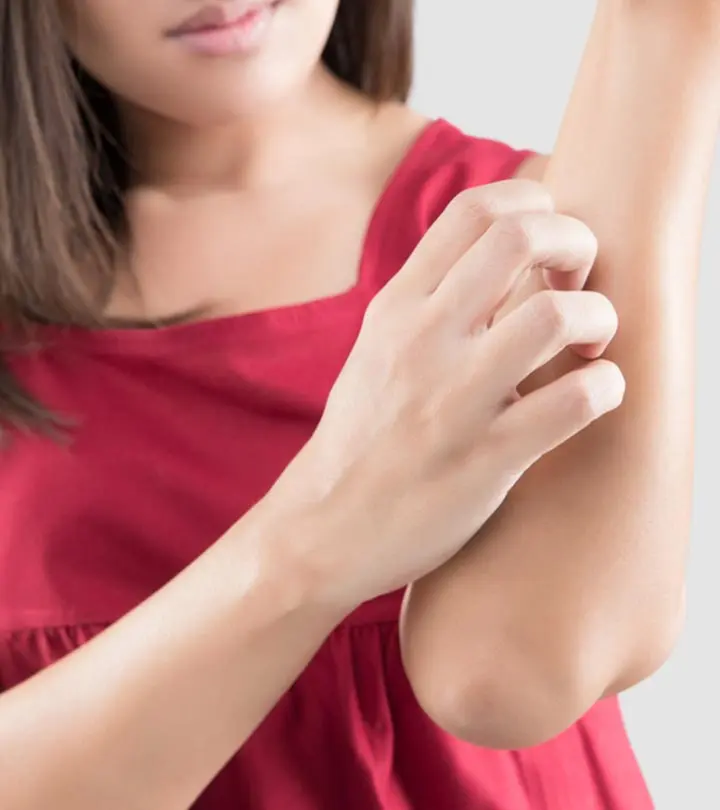
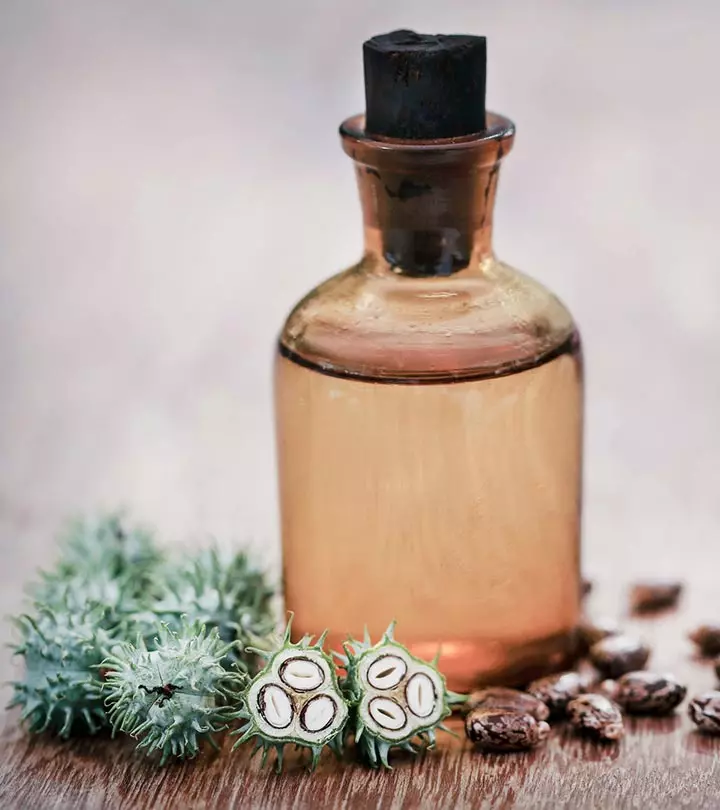
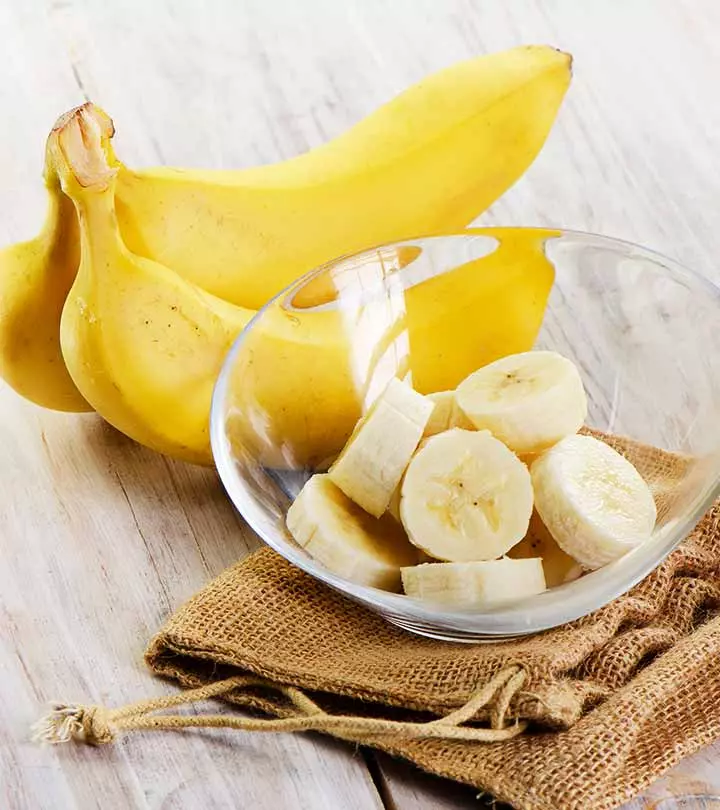
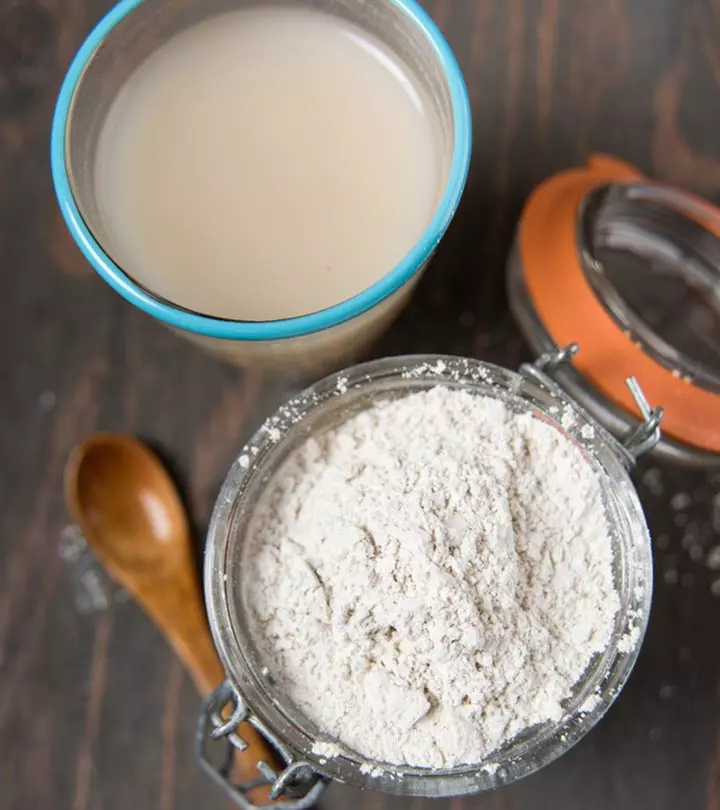

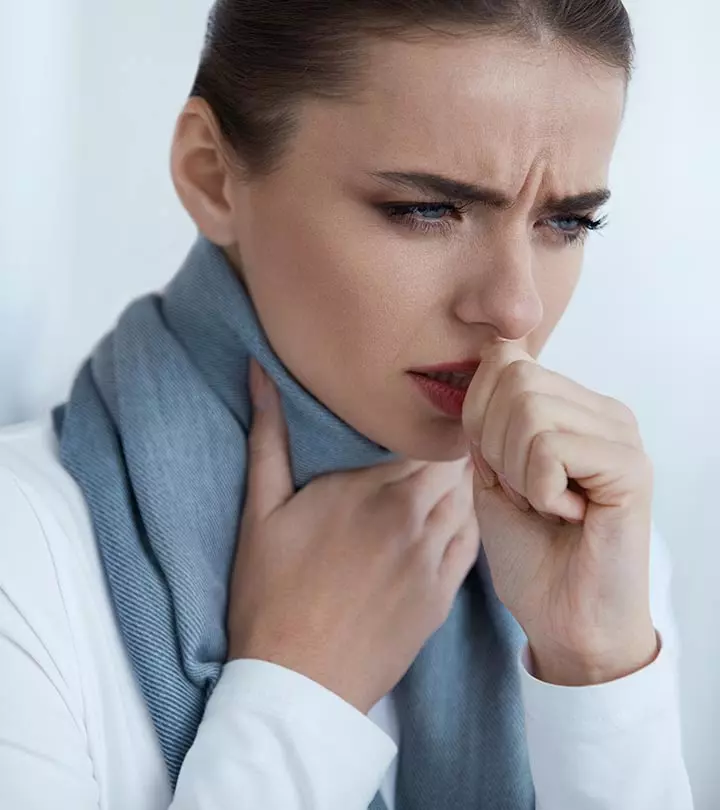

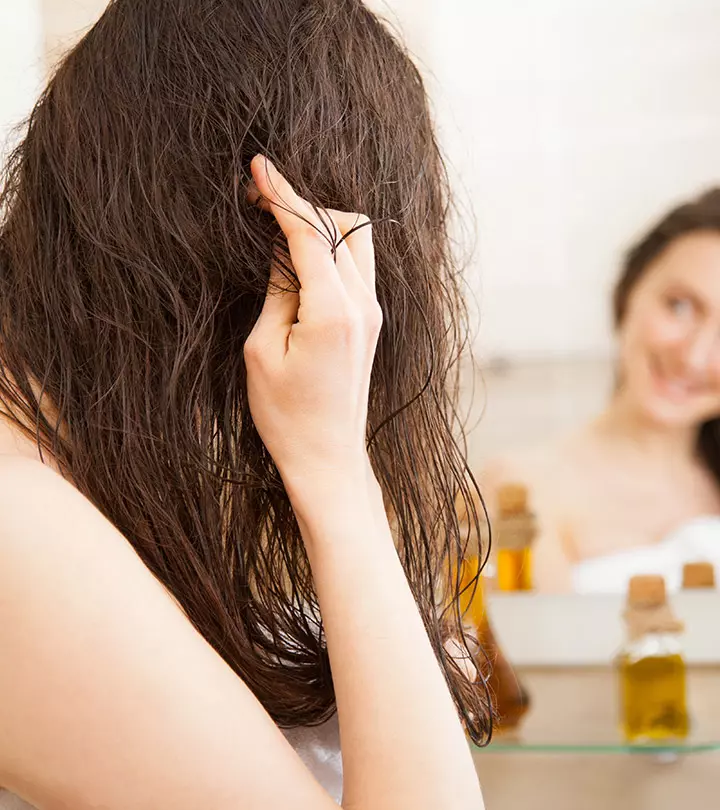

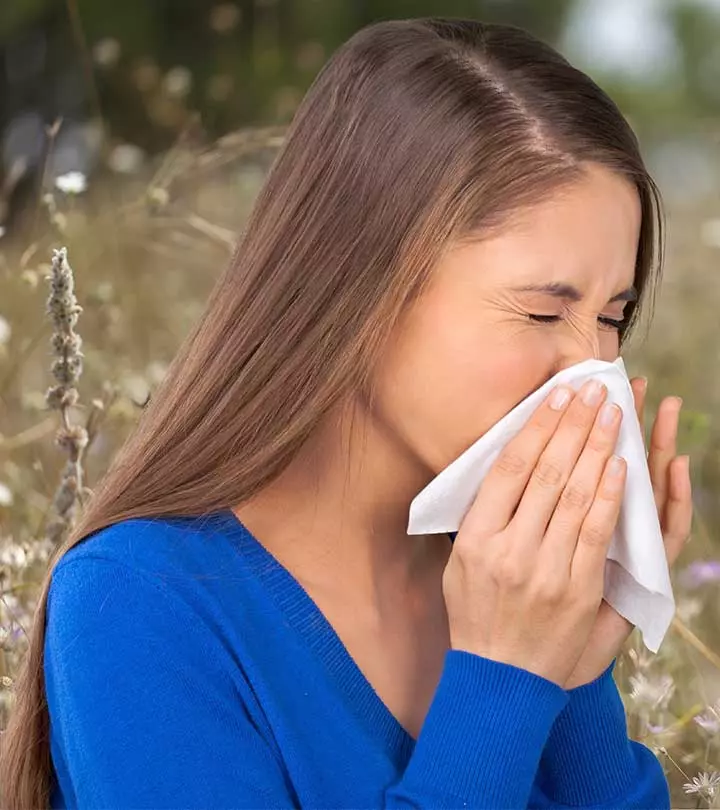

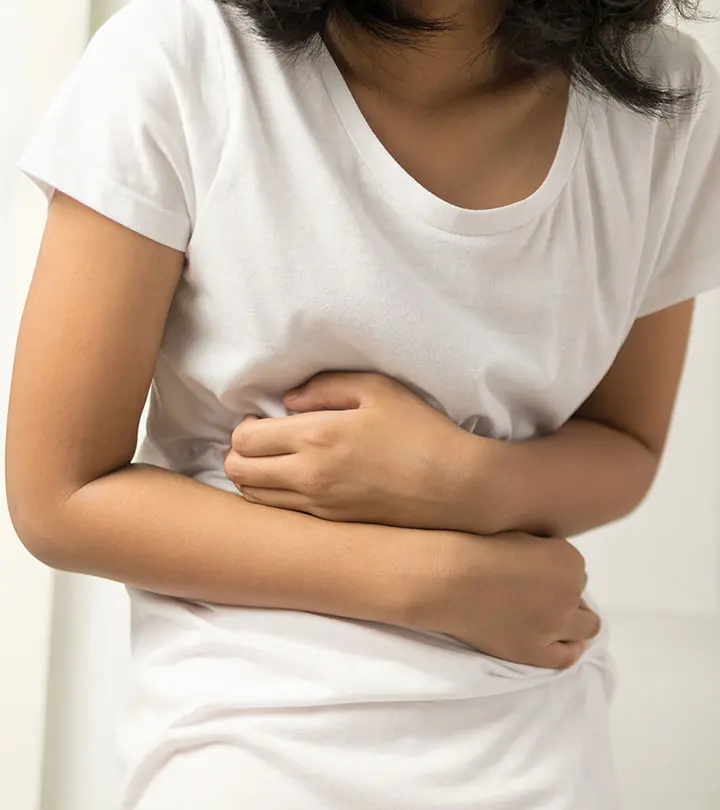
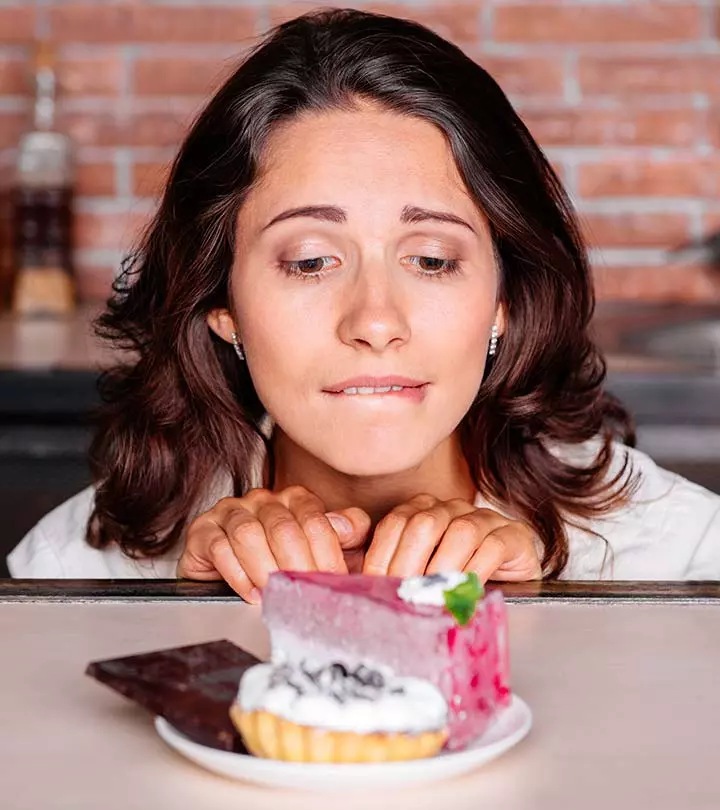
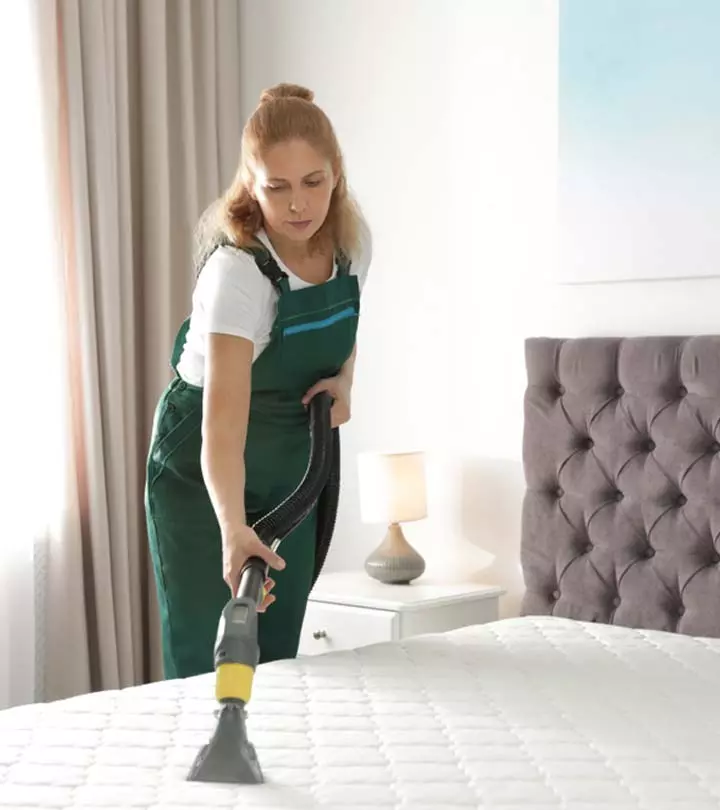
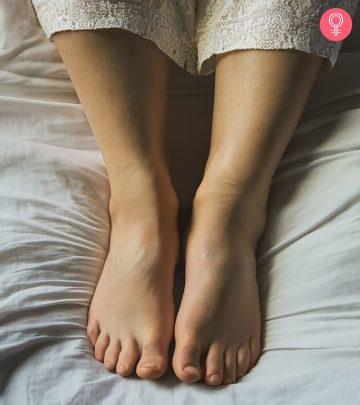
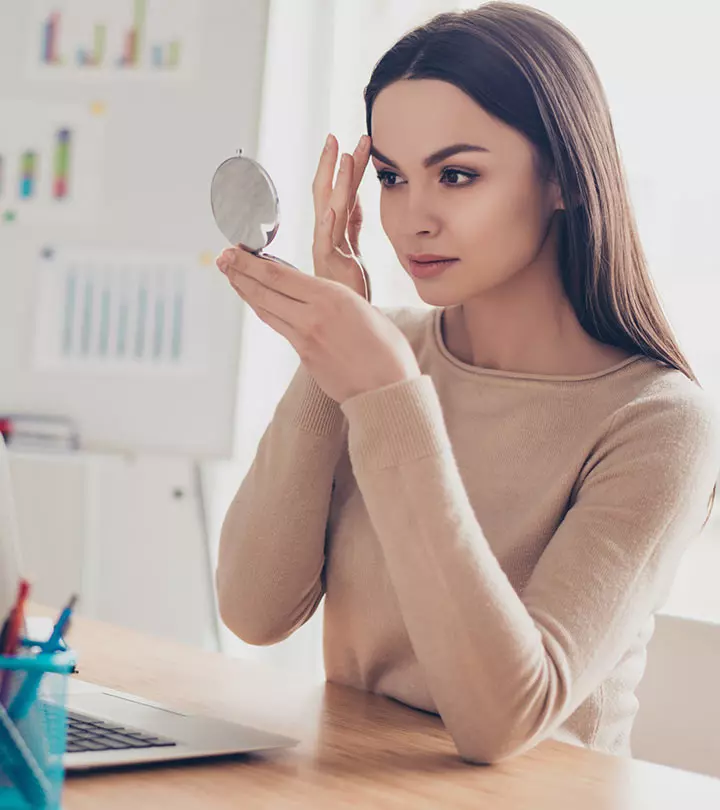
Community Experiences
Join the conversation and become a part of our empowering community! Share your stories, experiences, and insights to connect with other beauty, lifestyle, and health enthusiasts.